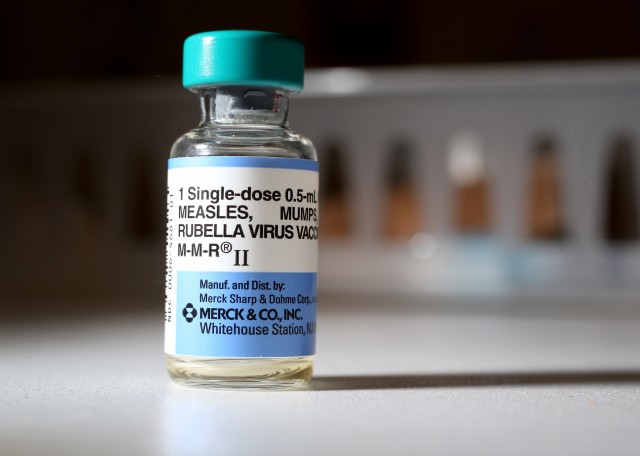2. What are the symptoms of measles?
Health care practitioners often refer to measles' symptoms as "the three C's": cough, coryza (runny nose) and conjunctivitis (red, watery eyes). High fever can also accompany these symptoms. After these symptoms are present, a rash appears on the face and spreads to the rest of the body.
Given how common coughs and runny noses are, measles can be tough to tell apart from other infections.
"The child looks ill," said Maldonado. "Some children can have these symptoms and not feel super sick, but these children are definitely not feeling well."
3. How is measles spread?
It is airborne in "very, very small droplets," said Maldonado. How small? As small as 5 microns. These droplets can take as long as two hours to drop to the ground, meaning that a classroom or a doctor's exam room where an infected child visits can remain infectious for up to two hours after that child leaves the room.
People with measles are infectious starting four days before the rash starts -- during the time when they have cough and runny nose, similar to a cold -- and continuing for four days after it appears.
4. Should I get a booster shot just to be safe?
If you are an adult and you know you did not have the second dose of the vaccine, Maldonado suggests getting a booster. If you are not sure about your vaccination history, your doctor can do a blood test to check your immunity levels. But what's easier is to go ahead and get the booster. Even if it turns out to be an extra shot, it won't hurt you.
Most people born before 1957 have probably had the disease and are immune to it.
Erica Pan, with the Alameda County of Public Health, says that if you received your first vaccination shot between 1963 and 1967 you may want to talk to your doctor as there have been instances of "breakthrough infections" in adults who received their vaccines during that period.
5. The CDC recommends children get the first of two measles vaccines between 12-15 months of age. What if my child is less than a year old? Can we still vaccinate her?
In many countries with highter exposure rates children do get vaccinated as young as 3 to 6 months, but "we know that the vaccine doesn't work that well at that age," Maldonaldo said. The optimal time for an immune response to the vaccine starts at 12 months of age.
The measles vaccine can be given to kids as young as six months if they will be travelling abroad or parents are concerned because of an outbreak. But because it is unclear how well the measles vaccine administered to young infants works over the long haul, Maldonado says that parents should follow up with the complete two dose vaccine after the child is 12 months old.
